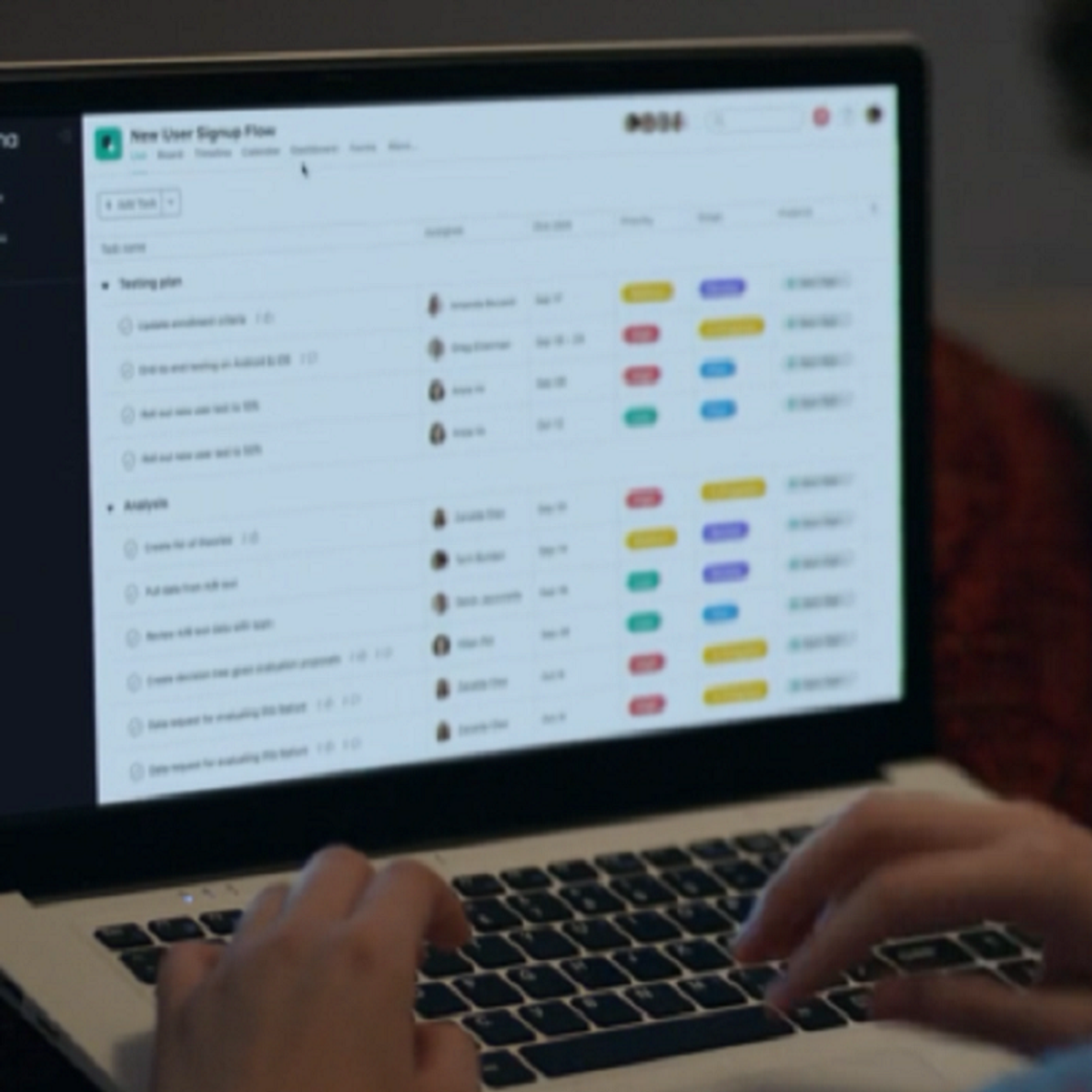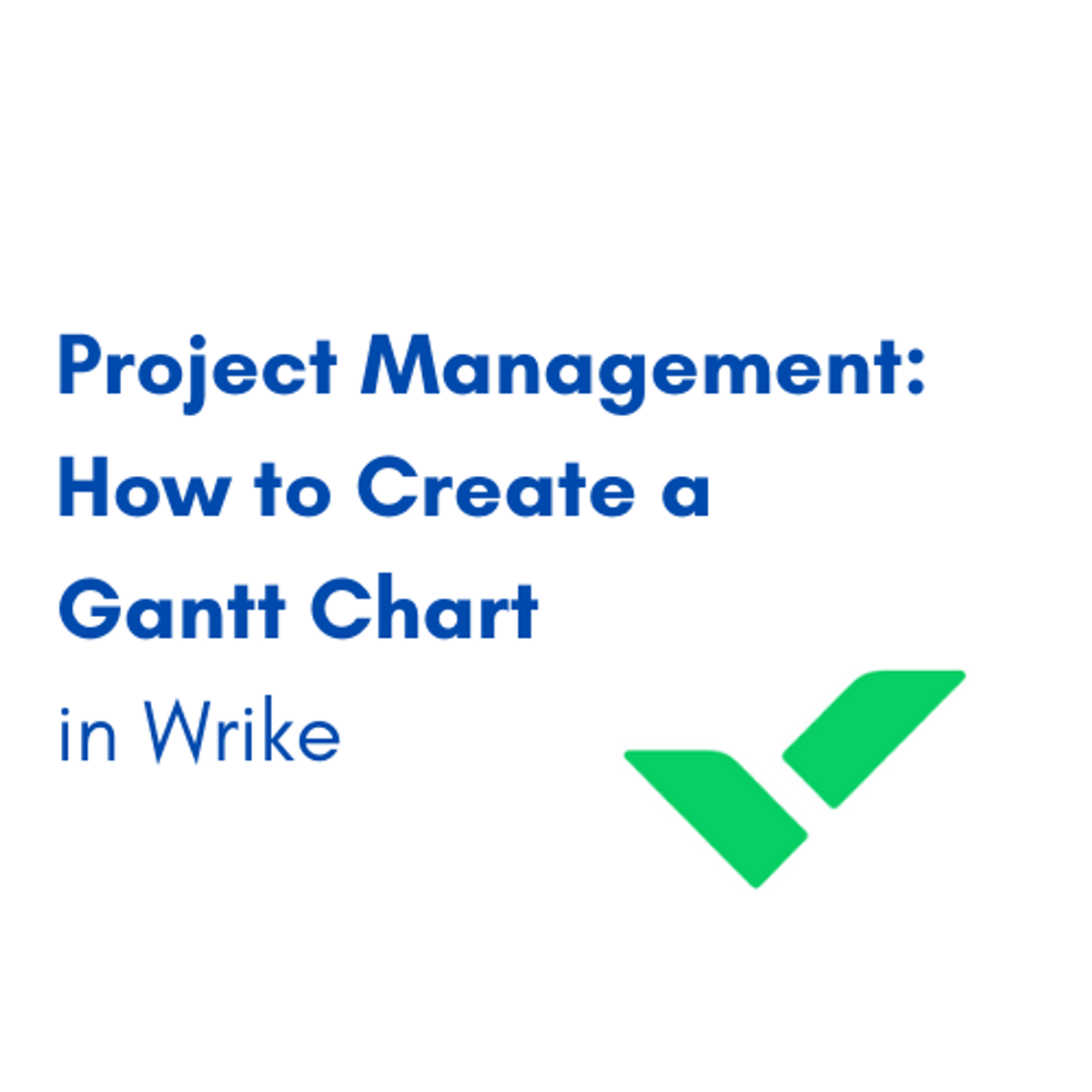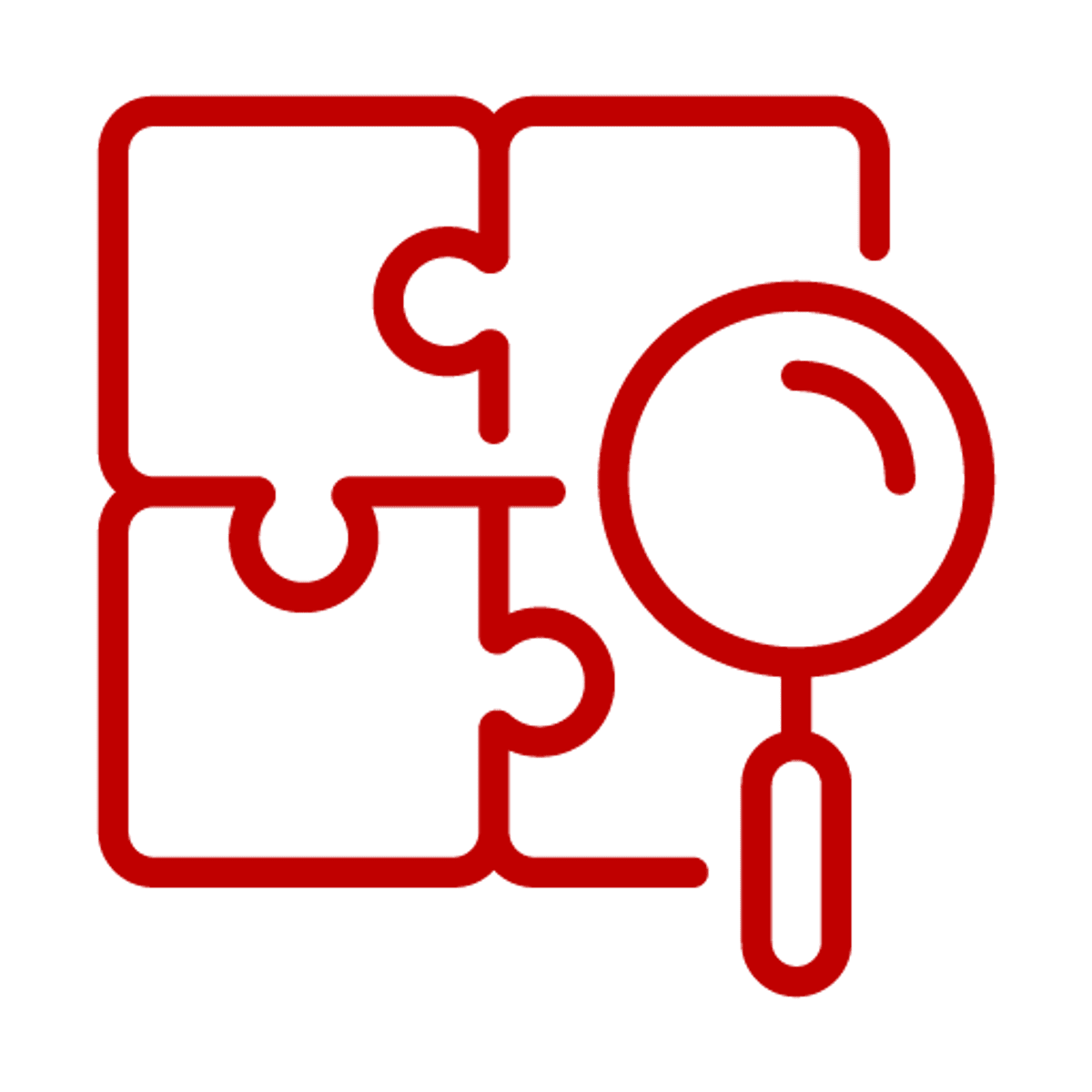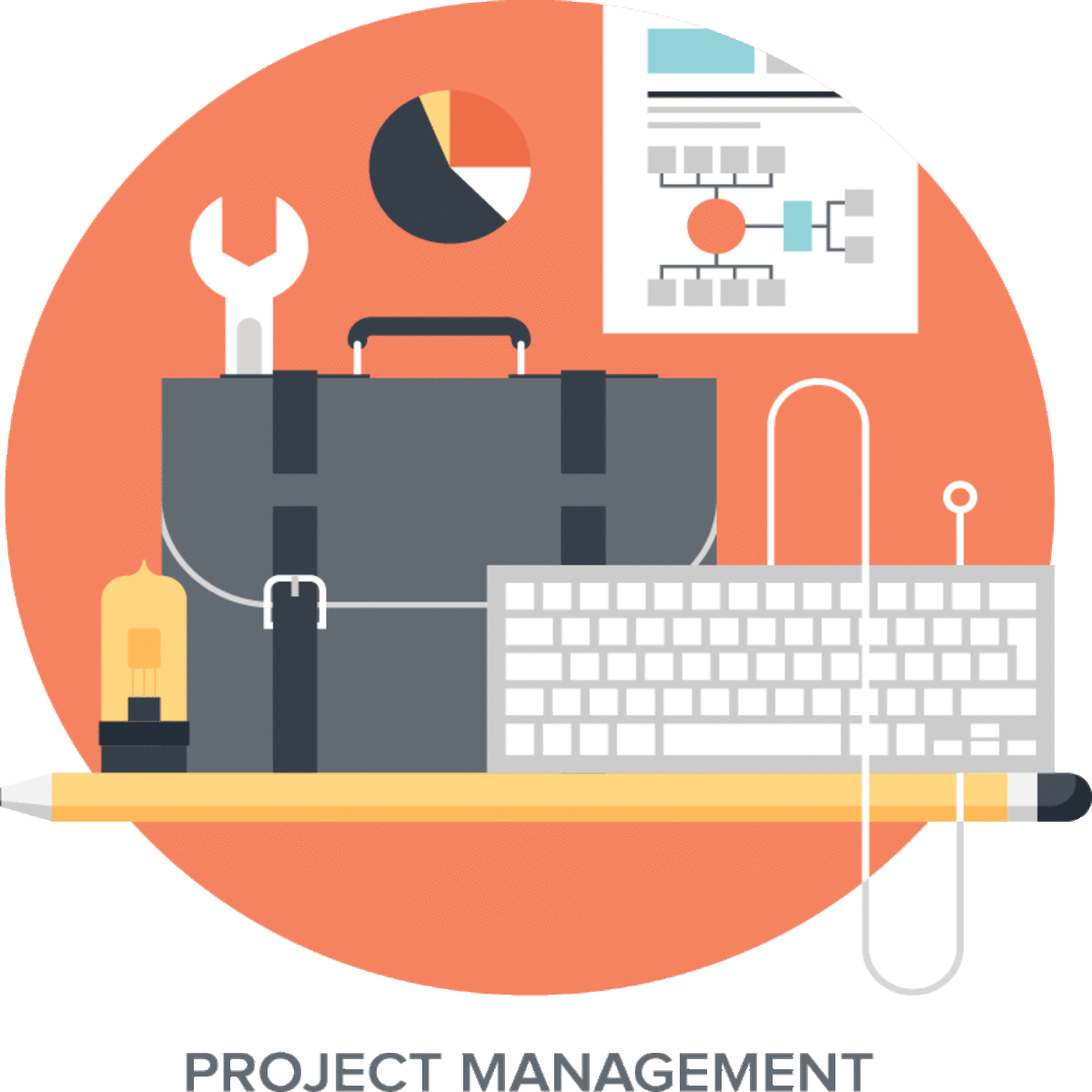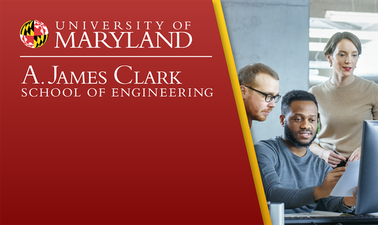Project Manager
Project Manager: Orchestrating Success in a Dynamic World
Project Managers are the conductors of the business world. They take a concept, an objective, or a need and transform it into a structured plan, guiding a team to bring it to fruition. At its core, project management involves planning, executing, and overseeing projects to ensure they meet their goals on time and within budget. Think of them as the crucial link ensuring all parts of a project work together harmoniously, from initial idea to final delivery.
Working as a Project Manager can be incredibly engaging. You are often at the center of innovation and change within an organization, steering initiatives that could range from developing groundbreaking software to constructing a new building or launching a major marketing campaign. The role offers a unique blend of strategic thinking, people management, and problem-solving, providing constant variety and opportunities to make a tangible impact.
This career appeals to individuals who thrive on organization, enjoy leading teams, and are adept at navigating complexity. If you find satisfaction in seeing a plan come together and achieving concrete results, project management might be a compelling path to explore.
Introduction to Project Management
Defining the Project Manager's World
Project management is the discipline of applying specific processes, methods, knowledge, skills, and experience to achieve specific project objectives according to agreed-upon criteria. A project is a unique, temporary endeavor designed to produce a specific outcome, like a new product, service, or result. Unlike ongoing operations, projects have defined start and end dates and specific goals.
The scope of project management is vast. It encompasses defining project goals, outlining the tasks needed, acquiring resources (both human and material), and setting budgets and timelines. A Project Manager (PM) leads the team, manages risks, communicates with stakeholders, and ensures the project stays on track.
Essentially, a Project Manager is responsible for the success or failure of a project. They must balance the constraints of scope, time, budget, and quality while managing stakeholder expectations and team dynamics. It's a role that requires a unique mix of organizational prowess, technical understanding, and interpersonal skills.
From Ancient Pyramids to Agile Sprints
While the formal discipline is relatively modern, the principles of project management have existed for millennia—think of the coordination required to build the pyramids or the Great Wall of China. However, modern project management began to take shape in the mid-20th century, driven by complex engineering and military projects.
Early methodologies, like Gantt charts (developed in the 1910s) and the Critical Path Method (developed in the 1950s), provided tools for planning and scheduling. The latter half of the 20th century saw the formalization of the profession with organizations like the Project Management Institute (PMI) being founded and establishing standardized bodies of knowledge (like the PMBOK® Guide).
Today, project management is more relevant than ever. Digital transformation, globalization, and rapidly changing markets mean organizations constantly undertake projects to adapt and innovate. Methodologies have evolved from traditional "Waterfall" approaches to more flexible "Agile" frameworks to handle uncertainty and deliver value faster. The modern Project Manager often needs to be versatile, potentially employing hybrid approaches tailored to specific project needs.
Where Do Project Managers Work?
Project Managers are needed in nearly every industry. Their skills are transferable because the fundamental challenge of managing resources, time, and scope to achieve a goal is universal. Some key sectors heavily rely on PMs.
Information Technology (IT) and Software Development are major employers, where PMs manage everything from software releases to infrastructure upgrades. Construction and Engineering have long relied on PMs to oversee complex building and infrastructure projects. Healthcare uses PMs for initiatives like implementing new electronic health record systems or improving patient care processes.
Finance and Insurance employ PMs for projects related to regulatory compliance, new product launches, or system integrations. Marketing agencies use PMs to manage client campaigns, while manufacturing companies need them for new product development and process improvements. Government agencies at all levels also require PMs for a wide array of public projects. The increasing projectization of work means demand is growing across even more sectors.
Key Responsibilities of a Project Manager
Laying the Groundwork: Planning and Scope
A core responsibility is defining what the project aims to achieve and how it will get there. This starts with clearly defining the project's goals, objectives, and deliverables in collaboration with stakeholders. What does success look like?
The Project Manager then meticulously defines the project scope – outlining exactly what work is included and, just as importantly, what is not. This prevents "scope creep," where uncontrolled changes derail the project. They develop a detailed project plan, breaking down the work into manageable tasks.
This involves creating a Work Breakdown Structure (WBS), estimating task durations, identifying dependencies, and sequencing activities logically. Tools like Gantt charts are often used to visualize the timeline and critical path. This planning phase sets the foundation for the entire project lifecycle.
These foundational courses cover project initiation and planning, crucial first steps in any project.
Leading the Charge: Team and Stakeholder Communication
Projects are executed by people, making team coordination and stakeholder communication vital. The PM assembles the project team, clarifies roles and responsibilities, and fosters a collaborative environment. They motivate the team, facilitate communication, and resolve conflicts.
Effective communication accounts for a huge portion of a PM's time—some estimate up to 90%. This involves regular status updates, reporting progress, and managing expectations with all stakeholders, from team members to executives and clients. Clear, concise, and timely communication is essential to keep everyone aligned and informed.
Managing stakeholder expectations is a delicate balancing act. The PM needs to understand stakeholder needs and influence, negotiate compromises, and ensure buy-in throughout the project lifecycle. Strong leadership and interpersonal skills are paramount here.
Guarding the Resources: Budget and Risk
Project Managers are stewards of organizational resources, primarily time and money. They are responsible for developing a realistic project budget based on estimated costs for tasks, resources, and materials. Throughout the project, they meticulously track expenditures against the budget.
Controlling costs involves monitoring spending, identifying variances, and taking corrective action if the project goes over budget. This requires financial acumen and careful attention to detail. PMs often use techniques like Earned Value Management (EVM) to assess cost and schedule performance.
Equally important is risk management. PMs identify potential risks that could threaten the project's success – such as resource shortages, technical challenges, or changing requirements. They assess the likelihood and impact of these risks and develop mitigation strategies or contingency plans. Proactive risk management helps minimize surprises and keeps the project on course.
These courses delve into managing project budgets, schedules, risks, and changes effectively.
Crossing the Finish Line: Delivery and Quality
Ultimately, the Project Manager is responsible for delivering the project's final product, service, or result. This involves managing the project timeline, ensuring tasks are completed as scheduled, and addressing any delays or roadblocks promptly. They monitor progress against the plan and make adjustments as needed.
Quality assurance is another critical aspect. The PM ensures that the project deliverables meet the agreed-upon quality standards and stakeholder requirements. This might involve setting quality metrics, conducting reviews or testing, and implementing quality control processes throughout the project.
Finally, the PM oversees the project closing phase. This includes finalizing all activities, obtaining formal acceptance of the deliverables, archiving project documents, conducting a post-project review or lessons learned session, and celebrating the team's success. Successful delivery and ensuring quality are the ultimate measures of a PM's effectiveness.
Evolution of Project Management as a Discipline
From Predictive Plans to Adaptive Cycles: Waterfall vs. Agile
Traditional project management, often called the Waterfall model, follows a linear and sequential approach. Each phase (requirements, design, implementation, testing, deployment) must be completed before the next begins. This works well for projects with clearly defined requirements and stable environments, like many construction projects.
However, for complex projects with evolving requirements, like software development, Waterfall can be rigid. Changes late in the process are difficult and costly. In response, Agile methodologies emerged in the early 2000s. Agile embraces iteration and incremental delivery.
Agile breaks work into short cycles (sprints), delivering functional pieces of the project regularly and incorporating feedback along the way. This allows for flexibility and adaptation to change. Frameworks like Scrum and Kanban are popular implementations of Agile principles. Understanding the strengths and weaknesses of both Waterfall and Agile is crucial for modern PMs.
Explore the differences and applications of these core methodologies.
ELI5: Waterfall vs. Agile
Imagine building with LEGOs. Waterfall is like having a detailed instruction booklet for a big castle. You follow step-by-step, finishing one section completely before starting the next. You know exactly what the castle will look like from the start. It's great if the instructions are perfect and you don't change your mind.
Agile is like having a big box of LEGOs and a general idea, maybe "build a cool spaceship." You build a small part, maybe the cockpit, show it to your friend, and ask, "What do you think?" Based on their feedback ("Needs more rockets!"), you build the next small part, adding rockets. You keep building small parts and getting feedback, so the final spaceship might look different than you first imagined, but it incorporates new ideas along the way and you get to play with parts of it sooner.
Waterfall is good for predictable projects where you know exactly what you need upfront. Agile is good for projects where things might change or you want to get feedback often and deliver usable parts quickly.
The Digital Transformation Wave
The rise of digital technologies has profoundly impacted project management. Cloud computing, collaboration platforms, mobile devices, and powerful software have changed how projects are planned, executed, and monitored. Teams can collaborate in real-time regardless of location, accessing project information instantly.
Project management software has become sophisticated, offering features for task management, scheduling, resource allocation, budgeting, reporting, and collaboration all in one place. Tools like Jira, Asana, Trello, Microsoft Project, and Smartsheet are commonplace.
Digital transformation also means projects themselves are often focused on implementing new technologies or digital processes. This requires PMs to have a degree of technical literacy and understand the implications of digital tools. The pace of change demands continuous learning and adaptation to new digital solutions.
These courses introduce popular digital tools used in project management.
Blending Methods: The Rise of Hybrid Frameworks
Recognizing that neither pure Waterfall nor pure Agile is always the perfect fit, hybrid methodologies have gained traction. These approaches combine elements from different frameworks to create a tailored process suited to a specific project's context.
For instance, a project might use a Waterfall approach for initial planning and requirements gathering (where clarity is high) but adopt Agile sprints for the development and testing phases (where flexibility is needed). Another hybrid model might involve using Kanban boards for task management within a larger, phase-gated project structure.
The ability to select and blend appropriate elements from various methodologies is becoming a key skill for project managers. It requires a deep understanding of different frameworks and the judgment to apply them effectively. This adaptability allows organizations to optimize their project processes for diverse needs and environments.
Core Competencies for Project Managers
Technical Proficiency: Tools of the Trade
Project Managers need a solid grasp of specific tools and techniques. Proficiency in project management software is often essential. This includes tools for creating schedules (Gantt charts, critical path analysis), tracking tasks (Kanban boards), managing resources, and reporting progress. Familiarity with popular platforms like Microsoft Project, Jira, Asana, or Smartsheet is highly valued.
Understanding project management methodologies (Waterfall, Agile, Scrum, Kanban, Hybrid) and knowing when to apply them is another core technical skill. Creating key project documents like project charters, work breakdown structures (WBS), risk registers, and communication plans also falls under technical competency.
Budget management, including cost estimation and tracking, requires technical skills as well. While deep technical expertise in the project's subject matter isn't always required, a foundational understanding helps the PM communicate effectively and make informed decisions.
Learn essential PM software and techniques with these courses.
The Human Element: Essential Soft Skills
Technical skills manage the 'what' and 'how' of a project, but soft skills manage the 'who'. Leadership is paramount. PMs must motivate teams, build consensus, and guide the project towards its goals, often without direct hierarchical authority. Communication is critical – clarity in conveying information, active listening, and adapting style to different audiences (team, executives, clients) are essential.
Conflict resolution and negotiation skills are frequently tested. Projects involve diverse stakeholders with potentially competing interests. PMs must navigate disagreements constructively and negotiate solutions that serve the project's best interests. Problem-solving involves identifying issues, analyzing root causes, and developing effective solutions under pressure.
Adaptability and resilience are also key. Projects rarely go exactly as planned. PMs need to handle ambiguity, respond effectively to changes and setbacks, and maintain composure. Building strong relationships based on trust and rapport is fundamental to navigating these human dynamics successfully.
Seeing the Bigger Picture: Strategic Thinking and Adaptability
Effective Project Managers don't just execute tasks; they understand how their project fits into the larger organizational strategy. Strategic thinking involves aligning project goals with business objectives, understanding market context, and anticipating future needs or challenges. It's about managing the project with the organization's success in mind.
This requires business acumen – understanding how the organization operates, its financial drivers, and its competitive landscape. PMs need to make decisions that support both the project's immediate goals and the organization's long-term vision.
Adaptability ties closely to strategic thinking. As business priorities shift or external factors change, PMs must be able to adjust project plans, pivot strategies, and guide their teams through uncertainty. This involves being flexible in approach, open to new information, and capable of reassessing direction when needed. It's about steering the ship effectively, even when the seas get rough.
Industry Nuances: The Value of Domain Knowledge
While core project management skills are transferable, having specific knowledge of the industry or domain in which the project takes place can be a significant advantage. A PM managing a software development project benefits from understanding the Software Development Life Cycle (SDLC) and related technologies.
Similarly, a construction PM needs familiarity with building codes, materials, and construction processes. In healthcare, understanding regulations like HIPAA and clinical workflows is crucial. This domain knowledge allows the PM to communicate more effectively with the team and stakeholders, better understand risks and challenges, and make more informed decisions.
While you can manage projects without deep domain expertise, acquiring it often leads to greater effectiveness and can be essential for specialized roles (e.g., IT Project Manager, Construction Project Manager). It helps bridge the gap between management processes and the actual work being done.
Formal Education Pathways
University Degrees: Building a Foundation
A common starting point for many project managers is an undergraduate degree. Degrees in Business Administration, Management, or Engineering often provide relevant foundational knowledge in areas like organizational behavior, finance, operations, and problem-solving. Some universities now offer specialized bachelor's degrees specifically in Project Management.
While not always strictly required, a bachelor's degree is often preferred by employers, especially for entry-level positions. According to Zippia data, a large majority (around 68%) of project managers hold a bachelor's degree. It provides a structured learning environment and signals a certain level of analytical and communication skills.
Coursework in related fields like economics, statistics, information systems, or communications can also be beneficial. The key is developing analytical thinking, communication skills, and a basic understanding of business operations.
Advanced Studies: MBA and Doctoral Routes
For those seeking leadership roles or deeper specialization, advanced degrees can be valuable. A Master of Business Administration (MBA) is a popular choice, particularly those with a concentration in Project Management or related fields like Operations Management or Information Systems.
An MBA provides broader business acumen, strategic perspective, and leadership training, which are highly relevant for senior PM roles like Program Manager or Director of Project Management. Some universities also offer specialized Master's degrees in Project Management (MSPM).
Doctoral studies (Ph.D. or DBA) in Project Management or related business fields are typically pursued by those interested in academic research, teaching, or high-level consulting. Doctoral programs delve deep into theory, research methodologies, and advancing the knowledge within the field.
Certifications: Validating Expertise
Alongside formal degrees, professional certifications are highly regarded in the project management field. They validate specific knowledge and skills according to industry standards. The most globally recognized certification is the Project Management Professional (PMP)® offered by the Project Management Institute (PMI)®.
The PMP® requires documented project management experience (36-60 months depending on education) and 35 hours of formal PM education, followed by passing a rigorous exam based on the PMBOK® Guide and other standards. It signifies a high level of competence and is often preferred or required for mid-to-senior level roles. According to PMI, PMP holders report significantly higher median salaries.
Other notable certifications include the Certified Associate in Project Management (CAPM)®, also from PMI, which is geared towards entry-level professionals. PRINCE2® (Projects IN Controlled Environments) is widely used, particularly in the UK and Europe. Agile certifications like Certified ScrumMaster (CSM)® or PMI Agile Certified Practitioner (PMI-ACP)® validate expertise in Agile methodologies.
These resources provide comprehensive preparation for the PMP and CAPM exams.
This book offers guidance on PRINCE2, a popular methodology particularly in Europe.
Online Learning and Skill Development
Transitioning via Digital Education: Is It Feasible?
Absolutely. Online learning offers a flexible and accessible pathway into project management, especially for those changing careers or looking to upskill while working. Numerous reputable platforms provide comprehensive courses covering foundational principles, methodologies, software tools, and preparation for certifications like PMP® or CAPM®.
Online programs range from short introductory courses to in-depth certificate programs offered by universities and industry leaders like Google or IBM. The flexibility allows learners to study at their own pace and often at a lower cost than traditional degree programs. You can build a solid knowledge base and acquire practical skills through virtual lectures, assignments, and simulations.
Success requires discipline and self-motivation. However, for dedicated learners, online education provides the necessary knowledge and credentials to make a successful transition into project management roles. Combining online coursework with practical experience (even on smaller projects initially) is a powerful strategy.
What You'll Learn: Virtual Program Curricula
Online project management programs typically cover a wide range of essential topics. Foundational courses introduce the project lifecycle, key terminology, and the role of a PM. You'll learn about different methodologies like Waterfall, Agile (including Scrum and Kanban), and hybrid approaches.
Core skill areas are central to most curricula. This includes project planning (scope definition, WBS, scheduling), budgeting and cost control, risk management (identification, analysis, mitigation), quality management, and procurement management. Communication and stakeholder management are also heavily emphasized.
Many programs incorporate training on specific software tools (MS Project, Jira, Asana, etc.) and prepare students for industry certifications. Advanced programs might delve into program management, portfolio management, or specialized areas like IT or construction project management. Look for curricula that balance theoretical knowledge with practical application.
These courses cover the essential lifecycle and planning aspects often found in virtual programs.
Building Your Portfolio: Simulated Projects and Capstones
One challenge with online learning is demonstrating practical application. High-quality programs address this through hands-on exercises, case studies, and simulated projects. These allow you to apply concepts and practice using PM tools in realistic scenarios.
Capstone projects are particularly valuable. These often require you to manage a simulated project from initiation to closing, creating key deliverables like charters, schedules, budgets, and risk plans. Completing a capstone provides tangible evidence of your skills to show potential employers.
OpenCourser lists numerous courses featuring guided projects or capstones. Some platforms, like Coursera Project Network, offer short, focused projects to build specific skills (e.g., creating a Gantt chart in a specific tool). Actively seek out courses with strong practical components to build your portfolio alongside your knowledge.
These capstone courses allow you to apply learned skills in a comprehensive project.
Integration: Online Learning and Formal Pathways
Online learning doesn't have to be an alternative to formal education; it can effectively supplement it. University students can use online courses to gain practical skills in specific software or methodologies not covered in depth in their degree programs, or to prepare for certifications like CAPM®.
Professionals can use online courses for continuing education, earning the Professional Development Units (PDUs) required to maintain certifications like the PMP®. Online learning provides a flexible way to stay current with evolving trends, tools, and techniques in the field.
For career pivoters, combining online certificate programs with existing degrees or professional experience creates a compelling narrative for employers. Highlighting relevant online credentials on your resume and LinkedIn profile demonstrates initiative and specialized knowledge. Many online courses offer shareable certificates you can showcase – learn more in the OpenCourser Learner's Guide.
Career Progression and Opportunities
Getting Started: Entry-Level Roles
For those new to the field, starting in an entry-level support role is common. Titles like Project Coordinator, Assistant Project Manager, Associate Project Manager, or Project Administrator often involve supporting senior PMs with tasks like scheduling meetings, tracking progress, maintaining documentation, and communicating updates.
These roles provide invaluable exposure to project management processes and tools in a real-world setting. They allow you to learn the ropes, build foundational skills, and understand the dynamics of project teams and stakeholder interactions. Average US base salaries for these roles typically range from $60,000 to $80,000, varying by location and company.
Another pathway is gaining experience within a specific industry first (e.g., as a software developer, engineer, or marketing specialist) and then gradually taking on project coordination responsibilities within that field before transitioning into a dedicated PM role.
Mid-Career Advancement: Managing Programs
After gaining several years of experience successfully managing individual projects, PMs often advance to roles like Senior Project Manager or Program Manager. A Senior PM typically handles larger, more complex projects with greater autonomy and responsibility.
A Program Manager oversees a group of related projects (a program) that collectively achieve a larger strategic objective. This role requires a broader perspective, focusing on coordinating multiple project teams, managing interdependencies, and ensuring alignment with overall business goals. According to Coursera data based on Glassdoor, the average US base salary for a Program Manager can be significantly higher than a Project Manager.
Progression often involves demonstrating strong leadership, strategic thinking, and the ability to manage complex stakeholder relationships. Certifications like the PMP® become increasingly valuable at this stage. Average salaries for mid-career PMs in the US generally range from the high $70Ks to low $120Ks, with top earners exceeding this.
Reaching the Top: Executive Paths
Experienced and successful Program Managers or Senior PMs may progress further into executive leadership roles. A common path is becoming a Director of Project Management or leading a Project Management Office (PMO). A PMO standardizes project management practices across an organization, provides resources and training, and oversees a portfolio of projects.
At the highest levels, individuals might move into roles like Vice President of Operations or even Chief Operating Officer (COO). These executive positions involve setting organizational strategy, overseeing large departments or entire business units, and driving overall operational efficiency and success. Deep business acumen and extensive leadership experience are essential.
Salaries at the Director and VP levels can vary widely but often reach well into six figures, sometimes exceeding $150,000 or more, especially in large organizations or high-demand industries. This path requires a proven track record of delivering strategic results and leading large teams effectively.
Alternative Paths: Consulting and Freelancing
Not all project management careers follow a traditional corporate ladder. Many experienced PMs transition into consulting roles, either with large consulting firms or as independent consultants. Consultants advise organizations on improving their project management practices, rescuing troubled projects, or implementing PMOs.
Freelancing is another popular option, offering flexibility and variety. Freelance PMs take on specific projects for different clients on a contract basis. This requires strong self-management skills, networking abilities, and the capacity to adapt quickly to new environments and teams.
Both consulting and freelancing can be financially rewarding, particularly for those with specialized expertise or a strong reputation. However, they also involve the challenges of business development, inconsistent income streams, and managing administrative overhead.
Industry-Specific Applications
Contrasting Worlds: IT vs. Construction
While core PM principles apply universally, their application differs significantly across industries. IT project management often involves managing software development, system implementations, or infrastructure upgrades. Agile methodologies are prevalent due to the iterative nature of software development and the need to adapt to changing requirements quickly. Tools like Jira are common.
Construction project management, conversely, deals with building physical structures. Projects often follow a more traditional Waterfall approach due to the sequential nature of construction phases (design, foundation, framing, finishing). Scope is usually well-defined upfront, and changes can be very costly. Specialized knowledge of building codes, materials, safety regulations, and tools like Primavera P6 is crucial.
Managing an IT team often involves collaborating with developers, QA testers, and UX designers, while construction PMs coordinate with architects, engineers, contractors, and tradespeople. Communication styles and risk factors also differ significantly between these domains.
Navigating Healthcare Projects
Project management in healthcare presents unique challenges and opportunities. Projects might involve implementing new medical technologies, streamlining clinical workflows, improving patient safety protocols, or managing healthcare facility expansions. Stakeholders are diverse, including clinicians, administrators, patients, and regulatory bodies.
Compliance with strict regulations (like HIPAA in the US) is paramount, adding layers of complexity to project planning and execution. Patient privacy and safety are non-negotiable priorities. Projects often require integrating complex systems and managing change among healthcare professionals who may be resistant to new processes.
Success in healthcare project management requires not only strong PM skills but also a deep understanding of the healthcare environment, clinical processes, and regulatory requirements. Effective communication and stakeholder engagement are particularly critical in this sensitive and complex field.
Scaling Projects: Global vs. Local
Managing projects on a global scale introduces complexities not typically found in local projects. Global projects involve coordinating teams across different time zones, cultures, and languages. Communication becomes more challenging, requiring sensitivity to cultural nuances and potentially translation services.
Logistics, legal requirements, and regulatory environments can vary significantly between countries, impacting procurement, scheduling, and compliance. Managing budgets in multiple currencies adds financial complexity. Building trust and cohesion within a geographically dispersed and culturally diverse team requires deliberate effort and strong virtual leadership skills.
Local projects, while potentially large, generally operate within a single cultural and regulatory context, simplifying communication and compliance. However, even local projects can require scaling strategies if they involve multiple sites or departments within a large organization.
The Compliance Maze: Sector-Specific Rules
Compliance requirements vary significantly by industry and heavily influence project management practices. In finance, projects must adhere to strict regulations regarding data security, financial reporting (e.g., SOX), and consumer protection.
In the pharmaceutical industry, drug development projects are governed by rigorous clinical trial protocols and regulatory approvals from bodies like the FDA. Failure to comply can have severe consequences. Aerospace and defense projects face stringent safety, security, and quality standards.
Project Managers in regulated industries must build compliance activities directly into their project plans. This includes ensuring documentation meets requirements, incorporating compliance checks and approvals into workflows, and managing risks associated with non-compliance. Domain knowledge of relevant regulations is often essential for PMs in these sectors.
Challenges in Modern Project Management
Managing from Afar: Remote Team Complexities
The rise of remote and hybrid work models, accelerated by the pandemic and digitalization, presents new challenges for Project Managers. Coordinating teams spread across different locations and time zones requires sophisticated communication strategies and reliance on digital collaboration tools.
Building team cohesion and trust without face-to-face interaction demands intentional effort. Ensuring equitable participation and visibility for all team members, regardless of location, is crucial. Monitoring productivity and maintaining motivation requires different approaches than in traditional office settings.
Project managers need strong virtual communication and leadership skills, proficiency with collaboration platforms (like Slack, Microsoft Teams, Zoom), and strategies for fostering a positive remote team culture. Overcoming potential communication delays and misunderstandings is a key focus. According to PMI research, approximately 61% of PM professionals work remotely at least some of the time, making these skills essential.
The AI Revolution: Automation and Workflow Impacts
Artificial Intelligence (AI) is increasingly impacting project management workflows. AI tools can automate repetitive tasks like scheduling, data analysis, reporting, and even initial risk identification. This can free up PMs to focus on more strategic activities, such as stakeholder engagement and complex problem-solving.
AI can enhance decision-making by analyzing vast amounts of project data to predict potential delays, forecast resource needs, or identify optimal paths. However, implementing AI also presents challenges, including the need for PMs to develop new skills in data literacy and understanding AI capabilities and limitations.
Concerns about job displacement exist, but the consensus is that AI will augment, rather than replace, human PMs. The uniquely human skills of leadership, empathy, creativity, and complex stakeholder management remain crucial. The future likely involves PMs working alongside AI as a powerful co-pilot. Experts note AI improves efficiency and can even help diversify the profession by bringing in data specialists.
Bridging Divides: Cross-Cultural Communication
In a globalized world, projects often involve teams and stakeholders from diverse cultural backgrounds. Navigating cross-cultural communication barriers is a significant challenge. Communication styles, attitudes towards hierarchy, decision-making processes, and perceptions of time can vary widely.
Misunderstandings can easily arise if PMs are not culturally aware and sensitive. Building rapport and trust across cultures requires empathy, active listening, and adapting communication approaches. Assumptions based on one's own cultural norms can lead to friction and inefficiency.
Effective cross-cultural project management involves educating oneself about the cultures involved, establishing clear communication protocols, being patient and explicit, and leveraging cultural diversity as a strength rather than viewing it solely as a barrier.
Integrating Sustainability
There is growing pressure for projects, particularly in construction, engineering, and manufacturing, to incorporate environmental sustainability principles. This involves considering the environmental impact throughout the project lifecycle, from design and material sourcing to execution and decommissioning.
Project managers may need to factor in sustainable design practices, source eco-friendly materials, manage waste reduction, and track environmental performance metrics. This adds another layer of complexity to planning, budgeting, and risk management.
Meeting sustainability goals often requires collaboration with environmental experts, navigating new regulations, and potentially adopting innovative technologies or processes. Balancing sustainability objectives with traditional constraints of time, cost, and scope is an emerging challenge for many PMs.
Explore sustainability topics further on OpenCourser's Sustainability browse page.
Future Trends Affecting Project Managers
Smarter Forecasting: Predictive Analytics in Risk Management
The use of predictive analytics, powered by AI and machine learning, is poised to transform risk management. Instead of relying solely on historical data and expert judgment, PMs will increasingly use algorithms to analyze vast datasets and identify potential risks with greater accuracy and foresight.
AI can detect subtle patterns and correlations that humans might miss, leading to earlier warnings about potential budget overruns, schedule delays, or quality issues. This allows for more proactive risk mitigation and contingency planning.
Project managers will need to become comfortable interpreting AI-driven risk assessments and integrating these insights into their decision-making processes. Data literacy and understanding analytical models will become increasingly important skills.
Distributed Leadership: Decentralized Project Teams
The trend towards remote and hybrid work is likely to continue, leading to more geographically decentralized project teams. This challenges traditional hierarchical structures and encourages more distributed leadership models.
Project managers will need to excel at leading teams they rarely, if ever, meet in person. This involves fostering trust, empowering team members, leveraging collaboration technologies effectively, and establishing clear communication norms for virtual environments.
Decision-making may become more distributed, with team members taking greater ownership of their work. The PM's role shifts towards facilitation, coaching, and ensuring alignment rather than direct command and control. Building a strong virtual team culture will be key.
Navigating the Ethics of AI
As AI becomes more integrated into project management, ethical considerations become paramount. Issues around data privacy, algorithmic bias, transparency in AI decision-making, and the impact of automation on employment need careful management.
Project managers may be involved in implementing AI tools or managing projects that develop AI systems. They will need to ensure these initiatives align with ethical guidelines and organizational values. This requires an understanding of AI ethics principles and the ability to engage in thoughtful discussions about the potential societal impacts.
Ensuring fairness, accountability, and transparency in AI applications within projects will be an emerging responsibility for PMs navigating this technological shift.
Building for Tomorrow: Climate-Resilient Project Design
With growing awareness of climate change impacts, incorporating climate resilience into project design is becoming increasingly important, especially for infrastructure, construction, and urban planning projects.
Project managers may need to consider factors like rising sea levels, extreme weather events, and resource scarcity during the planning and design phases. This could involve selecting more durable materials, designing infrastructure to withstand potential climate impacts, or incorporating green infrastructure solutions.
This trend requires PMs to collaborate with climate scientists and environmental engineers, understand climate risk assessments, and integrate long-term resilience considerations into project scope, budget, and risk management plans.
Explore climate-related topics on OpenCourser's Climate Science browse page.
Frequently Asked Questions (Career Focus)
Is PMP® certification mandatory for entry-level roles?
No, the PMP® certification is generally not required for entry-level project management roles like Project Coordinator or Assistant Project Manager. The PMP® itself has experience requirements (typically 3-5 years of leading projects) that entry-level candidates usually haven't met.
However, for entry-level positions, the Certified Associate in Project Management (CAPM)® certification from PMI can be beneficial. It demonstrates foundational knowledge and commitment to the profession, potentially giving candidates an edge. While not mandatory, certifications can strengthen a resume, especially when transitioning careers.
Focus first on gaining practical experience and foundational knowledge through coursework or entry-level positions. Certifications become more relevant and impactful as your career progresses.
How transferable are project management skills between industries?
Core project management skills are highly transferable across industries. The fundamental abilities to plan, execute, manage resources, control budgets, mitigate risks, communicate effectively, and lead teams are valuable in almost any sector.
Where differences arise is in the specific domain knowledge, tools, and regulatory environments unique to each industry (e.g., software development methodologies vs. construction safety regulations). While core skills transfer, transitioning smoothly often involves learning the specific context, terminology, and key challenges of the new industry.
Many PMs successfully switch industries throughout their careers. Highlighting your core competencies and demonstrating adaptability and a willingness to learn the specifics of the new sector are key when making such a move.
What is the career longevity in the age of AI automation?
The long-term outlook for project managers remains strong, despite AI automation. While AI is expected to automate many routine and data-intensive tasks (like scheduling, reporting, basic risk analysis), it cannot replace the essential human skills required for project management.
Skills like leadership, strategic thinking, complex problem-solving, stakeholder negotiation, conflict resolution, empathy, and creativity are difficult, if not impossible, to automate fully. AI is more likely to act as a powerful assistant or co-pilot, freeing up PMs to focus on these higher-level, uniquely human responsibilities. Reports suggest AI will handle many tasks, but the strategic and human elements remain critical.
The role will evolve, requiring PMs to become adept at using AI tools and focusing more on strategic oversight and people management. Those who adapt and leverage AI effectively are likely to see their value increase, not decrease. Demand for project professionals is projected to remain high globally.
What are the typical work hours and stress factors?
Work hours for Project Managers can vary significantly depending on the industry, company culture, and project phase. While many PMs work standard business hours, deadlines and critical project phases often require longer hours, including evenings or weekends, to ensure milestones are met.
The role can be stressful due to the high level of responsibility. PMs juggle multiple priorities, manage tight deadlines and budgets, navigate stakeholder conflicts, and are ultimately accountable for project success or failure. Dealing with unexpected problems, resource constraints, and team challenges adds to the pressure.
However, the role also offers immense satisfaction in seeing projects through to completion and making a tangible impact. Effective time management, strong organizational skills, resilience, and the ability to delegate can help manage stress levels.
Where is the global demand for project management talent highest?
Demand for project management professionals is strong globally, but some regions show particularly high growth. According to reports from the Project Management Institute (PMI), significant growth in project management-oriented employment (PMOE) is expected worldwide, with a projected need for 25 million new project professionals by 2030.
Emerging economies, particularly in Asia (like China and India), are expected to see substantial demand driven by rapid economic growth and large-scale infrastructure and development projects. South Asia and Sub-Saharan Africa are also projected growth areas.
In developed regions like North America and Europe, demand remains high, fueled by technological innovation, digital transformation projects, and the need to replace retiring professionals. Industries like IT, finance, healthcare, manufacturing, and construction consistently seek PM talent globally.
Are there entrepreneurial opportunities for experienced PMs?
Yes, experienced Project Managers have significant entrepreneurial opportunities. Their skills in planning, execution, resource management, and leadership are directly applicable to starting and running a business. Many PMs leverage their expertise to launch their own consulting practices, offering project management services to various clients.
Others may identify market needs through their project work and start businesses to provide specific products or services related to their industry experience. Their ability to manage budgets, timelines, and teams is a strong foundation for entrepreneurship.
Becoming an independent consultant or freelancer is a common entrepreneurial path, allowing PMs to choose their projects and clients. While entrepreneurship involves risks, the skill set of a seasoned PM provides a distinct advantage in navigating the challenges of building a successful venture.
Helpful Resources
As you explore a career in Project Management, several resources can provide further information and support:
- Project Management Institute (PMI): The leading global association for project management professionals. Their website (pmi.org) offers information on certifications (PMP®, CAPM®), standards (PMBOK® Guide), research, and membership benefits.
- AXELOS Global Best Practice: The organization behind PRINCE2®, ITIL®, and other frameworks. Their site (axelos.com) provides details on PRINCE2 certification and methodology.
- Agile Alliance: A non-profit organization supporting Agile principles and practices. Their website (agilealliance.org) offers resources, articles, and event information related to Agile methodologies.
- Scrum Alliance: A leading organization for Scrum certifications (CSM®, CSPO®). Visit scrumalliance.org for information on Scrum training and certification.
- OpenCourser: Explore thousands of management and professional development courses, compare options, read reviews, and find learning paths tailored to project management using our extensive catalog at OpenCourser.com.
- U.S. Bureau of Labor Statistics (BLS): Provides occupational outlook information, including job growth projections and salary data for various management roles in the US at bls.gov/ooh/.
Embarking on a career as a Project Manager is a journey that requires continuous learning, adaptability, and a blend of technical and interpersonal skills. It's a challenging yet rewarding path, offering the chance to lead impactful initiatives across diverse industries. Whether you're just starting, considering a pivot, or looking to advance, the resources and opportunities available, particularly through online learning platforms like OpenCourser, can help you build the knowledge and skills needed to succeed in this dynamic field.












